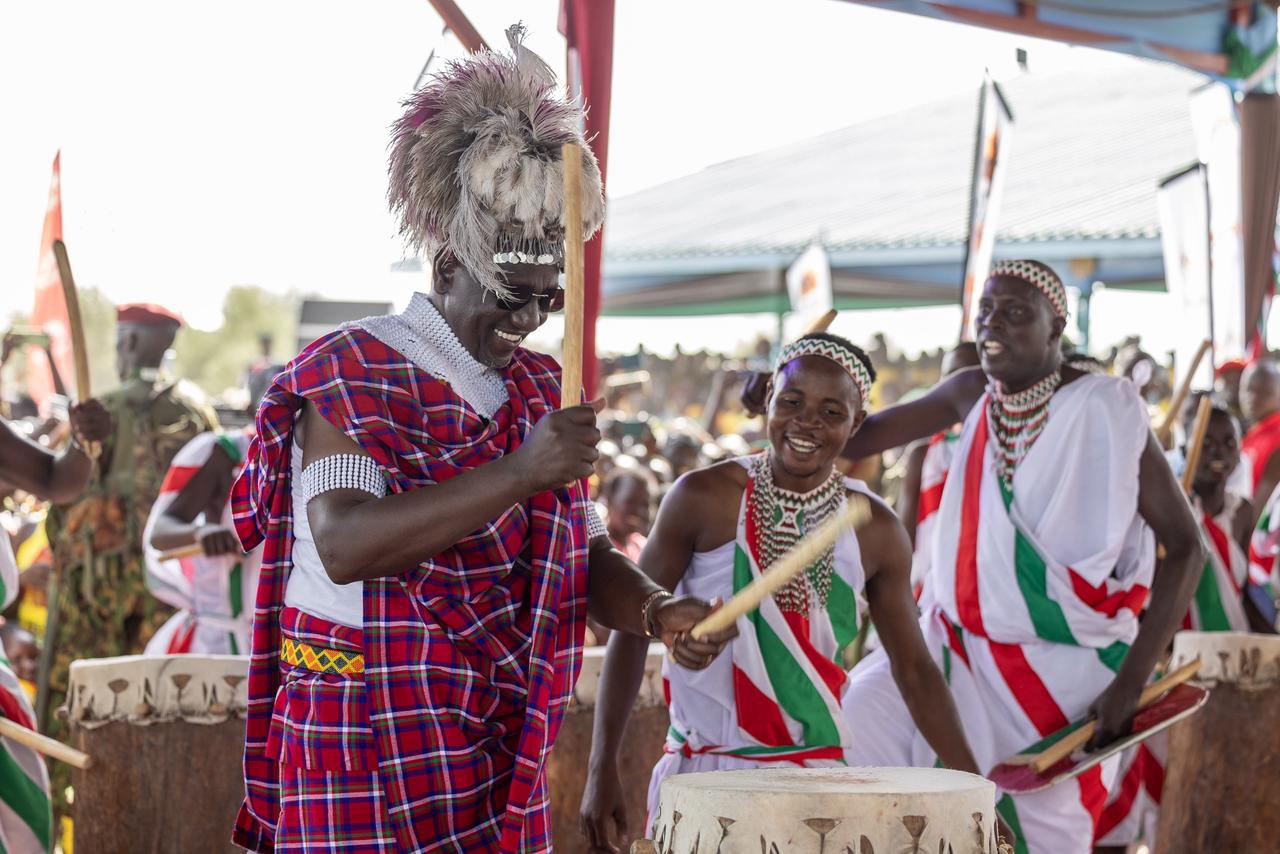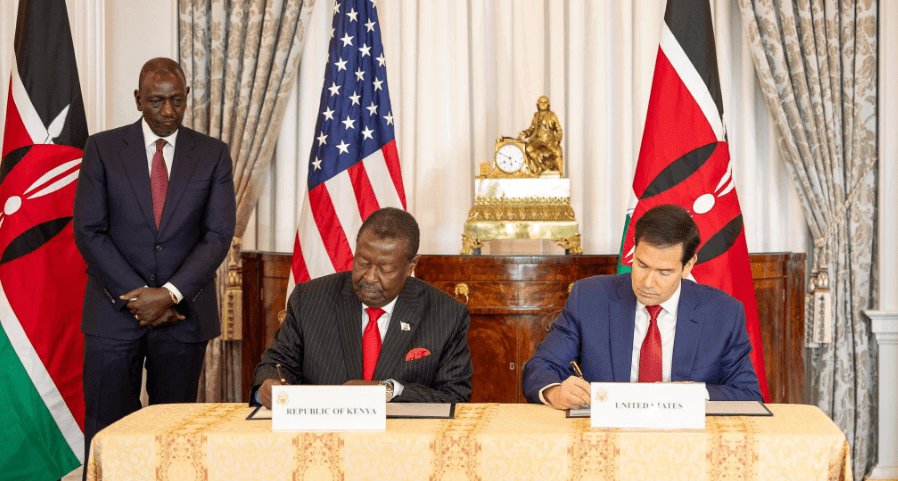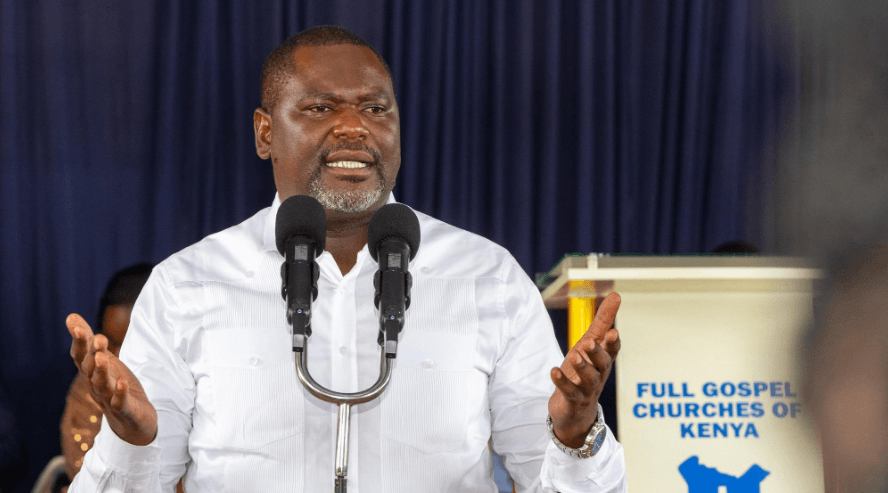
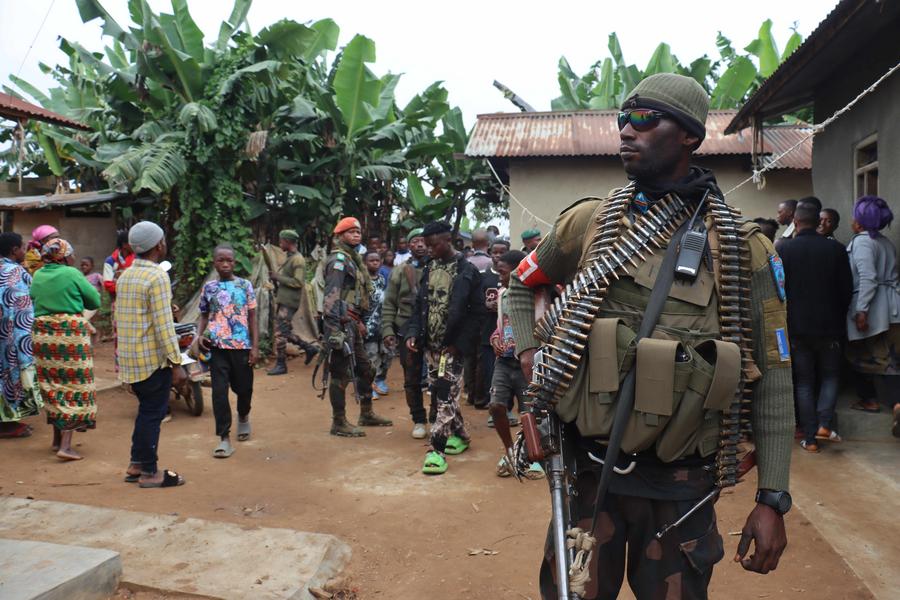 A soldier stands guard at the town of Oicha in Beni territory of North Kivu Province, the Democratic Republic of the Congo, on Aug. 17, 2025. (Str/Xinhua)
A soldier stands guard at the town of Oicha in Beni territory of North Kivu Province, the Democratic Republic of the Congo, on Aug. 17, 2025. (Str/Xinhua)
Even as peace efforts over the eastern Democratic Republic of the Congo (DRC) appear to gain ground on paper, the reality on the ground remains stark.
The March 23 Movement (M23) rebel group has announced the dispatch of a small delegation to Doha, but insisted that its mandate is limited to technical matters at negotiations in the Qatari capital, forestalling broader political talks.
At the United Nations (UN) Security Council, meanwhile, officials said the conflict's toll on civilians has been mounting and that repeated ceasefire pledges remain unfulfilled.
DIPLOMACY COLLIDES WITH BATTLEFIELD REALITIES
On Friday, Aug. 22, at a press conference in Goma, the North Kivu provincial capital under M23 control since January, the group's political leader Bertrand Bisimwa announced that a two-member team had been sent to Doha "only to discuss the mechanisms for a ceasefire and the release of prisoners."
He emphasized that the delegation's mandate is narrowly defined and does not extend to broader negotiations.
The remarks coincided with Qatar's efforts to resume mediation between the DRC government and the M23, following the signing of a Declaration of Principles on July 19 in Doha. The declaration had envisioned negotiations beginning by Aug. 8 and culminating in a comprehensive agreement by Aug. 18.
Both deadlines have passed, and Doha remains the only forum where the two sides have engaged directly in recent weeks.
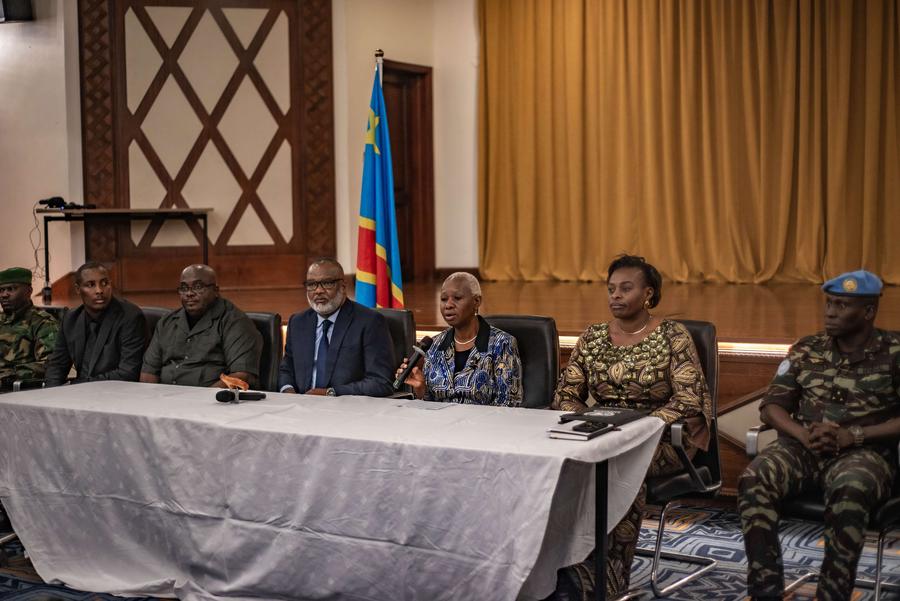 Bintou Keita (3rd, R), special representative of the UN secretary-general in the Democratic Republic of the Congo, attends a press briefing in Goma, eastern DRC, on June 13, 2025. (Str/Xinhua)
Bintou Keita (3rd, R), special representative of the UN secretary-general in the Democratic Republic of the Congo, attends a press briefing in Goma, eastern DRC, on June 13, 2025. (Str/Xinhua)
Just hours after the M23 press conference in Goma, UN Assistant Secretary-General for Africa Martha Ama Akyaa Pobee briefed an urgent Security Council meeting in New York on the deteriorating situation.
She acknowledged "encouraging progress" in diplomacy, citing the Washington Agreement signed on June 27 between the DRC and Rwanda and the July 19 Doha Declaration, but warned that "the evolution of the security situation on the ground has not matched the progress achieved on the diplomatic front."
Pobee voiced grave concern, highlighting a statement by UN High Commissioner for Human Rights Volker Turk that the M23 was responsible for large-scale killings in July, where 319 civilians were massacred in Rutshuru territory of North Kivu Province.
She also noted the "incremental territorial gains" by rebels in Masisi, Walikale, and Lubero territories in North Kivu, where they captured ground from local armed groups operating under the umbrella of the pro-government Wazalendo militias.
Meanwhile, in South Kivu Province, local media reported that M23 fighters captured the village of Lubumba in Uvira territory on Aug. 23, after crossing the Lushiji River.
The fall of Lubumba, a strategic crossroads, has raised fears that Uvira, now serving as a temporary administrative hub following the fall of Bukavu to M23 in February, could itself face encirclement.
"Commitment to process is welcome, but it is no substitute for an actual cessation of hostilities on the ground to end the privations of conflict in eastern DRC," Pobee told the UN Security Council.
DOHA TALKS CLOUDED BY UNCERTAINTY
The Doha peace process, once seen as a breakthrough, now faces an uncertain future.
Last week, Qatar sent a draft agreement to both parties, but further negotiations have been stymied by preconditions set by the M23, according to diplomatic sources.
"When we finish this stage, we can move on to something else," said M23 political leader Bisimwa, referring to the two-member team with a strictly limited mandate present in Doha.
He talked about "blockages" in the Doha process, accusing the DRC government of not honoring key provisions of the Doha Declaration.
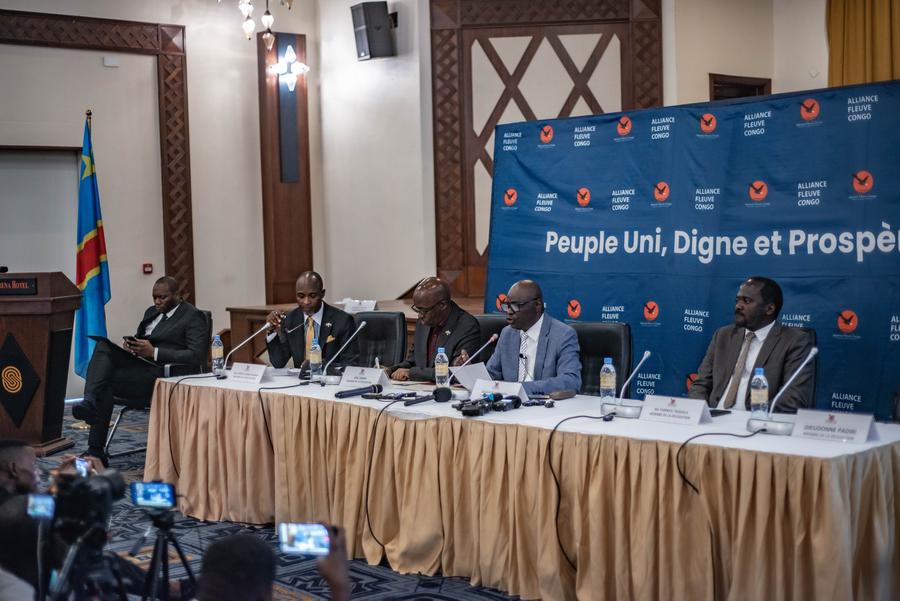 Benjamin Mbonimpa (2nd R), the M23's representative in several rounds of talks with Kinshasa in Doha, attends a press conference in Goma, the Democratic Republic of the Congo, July 25, 2025.(Photo by Zanem Nety Zaidi/Xinhua)
Benjamin Mbonimpa (2nd R), the M23's representative in several rounds of talks with Kinshasa in Doha, attends a press conference in Goma, the Democratic Republic of the Congo, July 25, 2025.(Photo by Zanem Nety Zaidi/Xinhua)
The M23 insists that its detained members must be released before broader peace talks can advance.
Bisimwa also maintained that the draft agreement "came from Kinshasa," saying the document was handed to mediators "simply to distract, to divert attention from important issues that needed to be addressed before entering the second phase, devoted to tackling the root causes of the conflicts."
Kinshasa has yet to respond directly to these remarks but it has reiterated its "firm commitment" to constructive dialogue while underscoring its determination to defend national sovereignty and restore lasting peace in the east.
Both sides have continued to accuse each other of violating the ceasefire agreed in Doha.
At a Cabinet meeting held on Friday, Vice Prime Minister and Interior Minister Jacquemain Shabani highlighted what he called "continued and flagrant violations" in North and South Kivu by the M23 of the Doha Declaration, as well as of UN Security Council Resolution 2773, according to official minutes.
Resolution 2773, adopted in February 2025, calls on Rwanda to cease its support for the M23 and to withdraw its troops from the DRC without preconditions, while urging the DRC to end support for specific armed groups, notably the Democratic Forces for the Liberation of Rwanda, a group allegedly responsible for the 1994 genocide against the Tutsi.
The M23, for its part, alleged "continued and flagrant violations" of the truce by government-aligned forces. In a statement issued Sunday, the group claimed that units, including "foreign mercenaries," had launched an offensive since midday Sunday against densely populated areas of Kadasomwa, a mineral-rich locality in South Kivu, causing heavy casualties and forcing residents to flee drone bombardments.
HUMANITARIAN TOLL MOUNTS
As diplomacy hits another rough patch, the humanitarian crisis in the eastern DRC has reached staggering proportions. According to the UN, more than 28 million people nationwide face acute food insecurity, while over 7 million are internally displaced, many of them uprooted multiple times.
Pobee, the UN assistant secretary-general for Africa, said the DRC is facing "one of the most acute humanitarian emergencies in the world."
Families have lost access to their fields, harvests have been seized, and basic livelihoods have collapsed as food insecurity soars, she said.
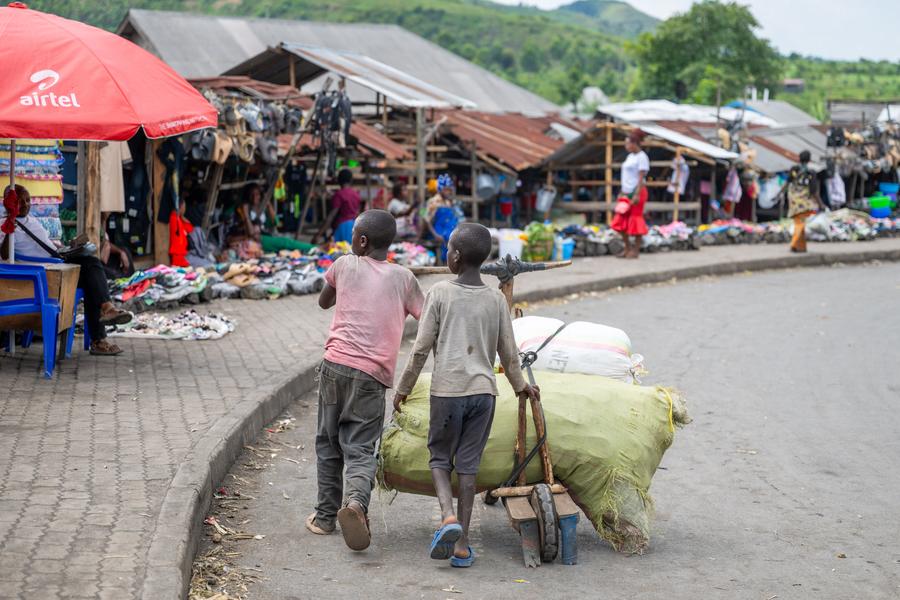 Two children transport goods at a local market in Sake, a small town located 27 kilometers from Goma, the capital city of North Kivu province in the Democratic Republic of the Congo, May 11, 2025. (Xinhua/Zheng Yangzi)
Two children transport goods at a local market in Sake, a small town located 27 kilometers from Goma, the capital city of North Kivu province in the Democratic Republic of the Congo, May 11, 2025. (Xinhua/Zheng Yangzi)
Recent attacks by the M23 and the Allied Democratic Forces (ADF) have dramatically increased civilian casualties, as humanitarian workers continue to risk their lives to deliver limited assistance. And conflict-related sexual violence persists, as does the forced recruitment of children.
The ADF, founded in the 1990s by Ugandan opposition groups and now affiliated with the Islamic State, has escalated attacks in North Kivu and neighboring Ituri Province since last month, deliberately targeting civilians.
However, Pobee stressed that although the situation on the ground remains dire, genuine engagement by the parties, together with concerted support from the international community, could still help lay the groundwork for a durable peace.
"We cannot and must not accept the extreme suffering and recurrent horrors that are commonplace in eastern DRC," she told the UN Security Council.
"At this critical juncture for the DRC and the region, it is crucial that this council place its full weight behind current peace efforts, alongside exerting its influence to ensure respect for and compliance with Resolution 2773," Pobee said.









